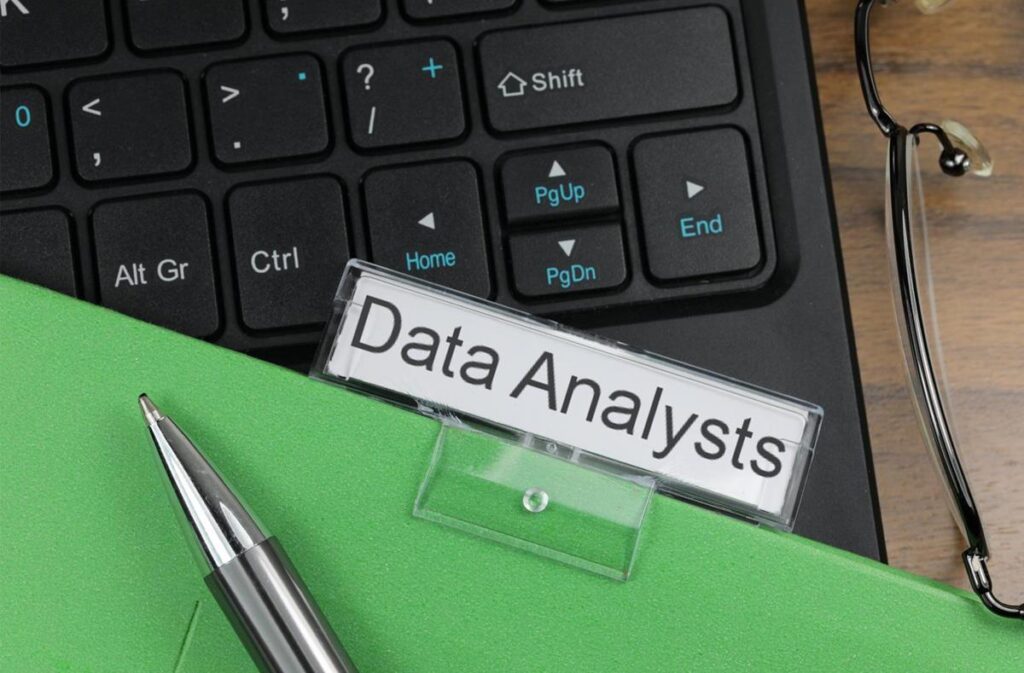Data analysis is a hot skill for jobs now. With everything going digital, companies need folks who can tackle problems using data. You should work on these skills every day.
Every day, we’re flooded with new info. At work, this is huge. Tech helps manage this flood. If you’re good at understanding data and solving problems, you’re in demand. Your ability to think analytically – breaking down big problems into smaller bits – is super important. It’s like visual thinking, seeing patterns, and figuring out what’s important.
Recent studies show 82% of bosses want employees with data analysis skills. So, what can you do? Work on those analytical skills – they’ll help your career a lot!
How to cultivate data analysis skills?
Alright, let’s dive into the basics. Now, the word “analysis” might sound like brain-busting stuff, but we do it all the time without realizing. Ever heard of the PAC Model? It’s a simple framework: Plan, Analyze, Conclude.
First up, Plan – figure out what you gotta do, like snagging secure cloud software or making a big call for your company.
Then, Analyze – gather info, check options. Finally, Conclude – pick the best option, share results. Easy peasy!
What top skills should data analysts have?
Alright, let’s talk about the top 10 skills you need for a successful career in data analysis:
1. Get to Know SQL:
Learn Structured Query Language (SQL) – it’s like the language databases speak. You can use it to organize and manage big sets of data. If you want to analyze data and give useful insights, knowing SQL is a must.
2. Master Microsoft Excel:
Lots of organizations use it for data storage and analysis. Being good at Excel helps you play around with data and find useful insights.
3. Embrace Math:
Being a data analyst means dealing with lots of numbers. So, having good math skills is crucial. It helps you understand and work with numbers to support your analysis.
4. Learn a Stats Language:
Get comfy with Python or R for stats! They make crunching big data easy. Pick one and become a pro – it’ll make you stand out.
5. Dive into Machine Learning:
Machine learning is like the brain of data analysis. It focuses on building smart algorithms to find patterns in data. Learning about it makes you a valuable player in the data analysis game.
6. Show Off Your Data Visualization Skills:
Can you make data look cool and understandable? That’s what data visualization is about. Use graphs and charts to communicate your findings. Being good at this makes you a hotshot data analyst.
7. Handle Data Like a Pro:
You need to collect and clean data for analysis. Collection is gathering the info you need, and cleaning is fixing any messy or wrong data. These skills ensure your analysis is spot on.
8. Talk the Talk – Communication Skills:
As a data analyst, you’ll be chatting with lots of people – IT folks, developers, clients, and bosses. You need to explain your findings in a way everyone gets. Good communication skills are key.
9. Think Critically:
When you’re digging into data, you need to think smart. Critical thinking helps you figure out what data to collect and how to use it. Employers love hiring critical thinkers – people who make logical decisions.
10. Solve Problems Like a Pro:
Your job as a data analyst is to solve problems using data. Good problem-solving skills mean you can spot and fix issues quickly. Employers love having someone they can rely on to get things done.
What is data analyst job description?
A person who looks at data, called a data analyst, gathers, cleans, and makes sense of information to help answer questions or solve problems. They work in different areas like business, money stuff, law, science, medicine, and government.
Imagine a company wants to know who to aim their ads at next. Or think about finding out which age group is more likely to get sick from a certain disease. Ever wonder what behaviors are linked to money scams? Well, a data analyst is the one who figures these things out.
How do i succeed in my career as a data analyst?
Many companies put money into tools, thinking that’s enough. But having good tools isn’t everything. What’s more important is investing in the people who use them! Finding skilled analysts can be tough. Here are 8 things every analyst should work on:
- Tell a simple story: Make things easy to understand. If you can’t explain it simply, you might not understand it well.
- Pay attention to details: Small things matter. If you miss them, you might make big mistakes later.
- Be business smart: Understand how the company works. Your analysis should help the business make better decisions. Don’t just give information, give actionable insights that lead to real improvements.
- Get creative with data: Use data in cool ways. Find patterns and trends that others might miss.
- Be a people person: Talk to different people in the company. Be friendly and connect with them. This helps you understand what the business needs.
- Keep learning: The world of data is always changing. Keep improving your skills and learn new things.
- Don’t fear mistakes: Mistakes happen. Admit them and learn from them. It’s how you get better.
- Know when to stop: Sometimes, good is good enough. Don’t spend too much time trying to make everything perfect.
After reading this, ask yourself if you or your team follow these tips. Can you find areas to get better? Are you a good analyst?
What are the Data Analyst roles and responsibilities?
A data analyst plays a vital role in organizing information about sales, market research, logistics, language, and other behaviors. They use technical skills to make sure data is accurate and of high quality. After that, they analyze, design, and present the data in a way that helps people and businesses make better decisions.
- Their tasks include using tools to get data from different sources, fixing errors in the code, and maintaining databases. They also analyze data to understand its quality and meaning, using statistical tools to find patterns and trends. This helps in predicting and diagnosing problems.
- Data analysts assign numbers to important business functions, making it easier to assess and compare performance over time. They look at local, national, and global trends affecting the organization and the industry. Then, they create reports for management, sharing trends, patterns, and predictions.
- Working with programmers, engineers, and management, data analysts identify opportunities for process improvement. They propose changes to systems and create strategies for managing data. The final step involves preparing analysis reports for stakeholders, guiding them in making important decisions based on facts and trends.
- Exploratory Data Analysis (EDA) is another important aspect of a data analyst’s job. During EDA projects, analysts closely examine data to identify patterns. They use data modeling techniques to summarize the main features of the analysis.
Read More: Gemini AI Licensing

